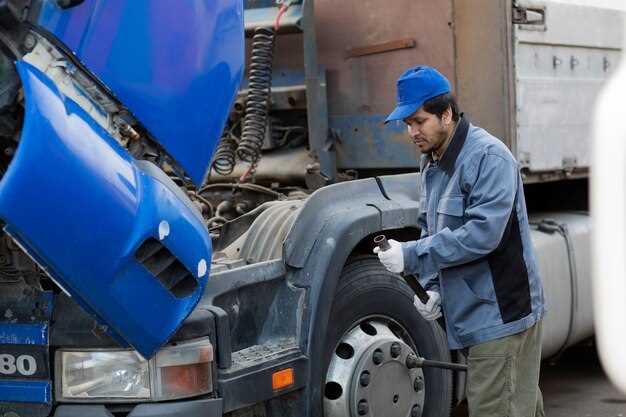
Ensuring the safety of your trailer is crucial for both the integrity of the vehicle and the well-being of its users. Regular upkeep and service of your trailer can prevent potential accidents and extend its lifespan. Many trailer owners often overlook this aspect, thinking that occasional checks are sufficient. However, establishing a consistent service schedule is essential for maintaining a safe and reliable trailer.
Determining the frequency of service largely depends on how often you use your trailer, the conditions in which it operates, and the specific recommendations from the manufacturer. For instance, a trailer used frequently for heavy loads may require more frequent inspections and maintenance compared to one that is rarely used. Understanding these factors is key to developing an effective maintenance routine.
In addition to regular inspections, it’s important to be aware of the signs that indicate your trailer might need immediate attention. Components such as brakes, lights, and tires should be checked regularly to ensure optimal performance. Neglecting these areas can lead to serious safety hazards on the road. Therefore, making service and upkeep a priority will help safeguard not just your trailer, but everyone on the road around you.
Understanding the Recommended Service Intervals for Different Trailer Types
Proper upkeep of a trailer is crucial for ensuring safety on the road. Different types of trailers have varying service intervals based on their design, usage, and load capacity. Understanding these intervals can help prevent accidents and prolong the lifespan of the trailer.
For utility trailers, which are often used for carrying small loads, it is recommended to perform a check-up every six months. This interval allows for regular inspection of the tires, lights, and braking systems. Ensuring these components are in good condition minimizes the risk of malfunctions during transport.
In the case of travel trailers, which are more complex due to their living quarters, service should be conducted at least once a year. This includes checking the plumbing, electrical systems, and appliances, in addition to the chassis and suspension parts. Regular maintenance keeps everything operational and safe for family trips.
For commercial trailers that carry heavy loads, the upkeep routine is more rigorous, often necessitating monthly inspections. These trailers endure greater wear and tear; hence, checking for tire condition, brake effectiveness, and structural integrity is vital to preventing commercial liability issues.
Finally, specialized trailers, such as those for transporting vehicles or equipment, may have service requirements that vary significantly. It is crucial for owners to refer to the manufacturer’s guidelines for specific maintenance recommendations based on their unique design and usage.
Overall, adherence to recommended service intervals tailored to each trailer type not only enhances safety but also contributes to the trailer’s longevity and reliability on the road.
Key Safety Checks to Perform during Trailer Maintenance

Regular maintenance is essential to ensure the safety and reliability of your trailer. Here are key safety checks that should be performed during your trailer service:
1. Tire Inspection: Check the tire pressure, tread depth, and sidewalls for any signs of wear or damage. Properly inflated and maintained tires are critical for safe towing.
2. Brake System Evaluation: Inspect the brake pads, rotors, and brake fluid levels. Ensure that the braking system functions correctly and that the trailer stops as it should without unusual noises.
3. Coupler and Hitch Examination: Verify that the coupler is secure and that the hitch is in good condition. Look for any signs of wear and ensure that all locking mechanisms operate efficiently.
4. Lights and Wiring Check: Test all lights, including brake lights, turn signals, and hazard lights. Check the wiring for any frays or connection issues to ensure visibility and compliance with road safety regulations.
5. Frame and Chassis Inspection: Examine the frame and chassis for rust, cracks, or significant damage. A strong and intact structure is vital for the overall integrity and safety of the trailer.
6. Safety Chains and Breakaway Switch: Inspect safety chains for wear and ensure they are properly attached. Check that the breakaway switch is functional, as it’s a critical safety feature that prevents trailer detachment while towing.
7. Load Distribution: Review the load distribution to ensure it is balanced correctly. Overloading or improper loading can lead to handling problems and increase the risk of accidents.
By regularly performing these safety checks during trailer service, you can minimize risks and enhance the overall performance of your trailer on the road.
Signs Indicating Your Trailer Needs Immediate Servicing

Recognizing when your trailer requires immediate service is crucial for ensuring safety on the road. Several warning signs can indicate that your trailer needs attention before embarking on any journey.
First and foremost, inspect your tires regularly. Uneven wear, visible cracks, or bulges are significant indicators that your trailer’s tires need immediate servicing. These issues can lead to blowouts, compromising not only your safety but also that of other road users.
Additionally, pay attention to your braking system. If you experience any unusual noises when braking, or if the brakes feel spongy or unresponsive, it is essential to have your trailer serviced promptly. Effective brakes are vital for safe operation, particularly when hauling heavy loads.
Another critical sign is any noticeable movement or swaying while towing. If your trailer seems unstable or fishtails, this could indicate a problem with the suspension system or alignment, necessitating immediate servicing to prevent potential accidents.
Fluids also play a significant role in maintaining your trailer. If you observe any leaks, particularly oil or brake fluid, servicing should be prioritized to avoid further damage and ensure functionality.
Lastly, check your trailer’s electrical systems. If you notice malfunctioning lights or a trailer brake controller that is not functioning correctly, these issues require urgent attention. Proper lighting is essential for visibility and signaling to other drivers, ensuring safety on the road.
In summary, be vigilant for these signs indicating your trailer needs immediate servicing. Regular inspections and prompt action can prevent hazardous situations and maintain the safety of your trailer. Always prioritize servicing when these indicators arise.





